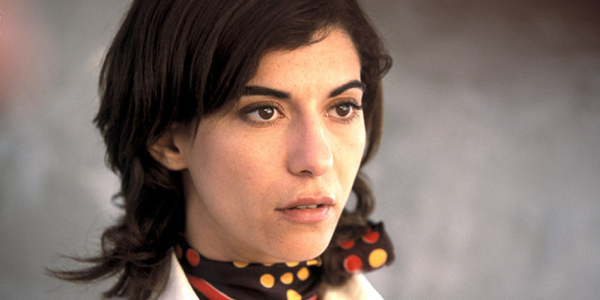Movie review by Greg Carlson
An often harrowing study of a pair of young Palestinians intending to carry out a suicide bombing mission in Israel, Hany Abu-Assad’s “Paradise Now” is simultaneously a tense thriller and a meditation on the absurdity of the ultimate self sacrifice. The production of a movie interested in dealing with this particular content assumes a certain amount of high-wire peril, especially considering that location shooting in Nablus and Nazareth is inherently dangerous and also because the humanizing of suicide bombers demands at least some level of audience identification with the film’s protagonists.
Focusing on two West Bank auto shop mechanics, “Paradise Now” scarcely gives itself enough time to set up the characters of Said (Kais Nashef) and Khaled (Ali Suliman) before they are informed that they have been called on to carry out a mission on behalf of a group of unnamed anti-Israeli militants with whom they associate. Said, the son of an executed Palestinian, is desperate to lash out against what he feels is an oppressive life fraught with perpetual humiliation and shame. Khaled is not as fleshed-out, but the relationship of the two friends drives the action once the suicide run (which meets with all sorts of complications) gets underway.
Abu-Assad, himself an Israeli-born Palestinian, understands the precariousness of his subject matter in such a way that “Paradise Now” occasionally tries on too many hats. Containing elements of the crime film as well as cooking up an ill-timed romantic storyline, “Paradise Now” is most surprising for its gallows humor. The director devotes a substantial amount of time to the preparations made by the bombers, and the videotaping of farewell speeches provides several bleak jokes, including a running gag about water filters. Once the preparations are complete, rounded out by some none-too-convincing pep talks from other members of the militia, Said and Khaled make their way toward the border.
“Paradise Now” addresses many possible reasons why young men like Said and Khaled would choose to “martyr” themselves for what they believe. To Abu-Assad’s credit, the movie largely skips any lengthy historical contextualization, choosing instead to let the self-doubts of its central characters guide the complexity of suicide as a tool of resistance. The film also includes the argument for non-violence in the character of Suha (Lubna Azabal), a well-educated young woman who becomes romantically involved with Said. Suha’s dialogue is some of the best written in the script, penned by director Abu-Assad and Bero Beyer, one of the film’s producers.
If Suha is the voice of reason in “Paradise Now,” Said represents the grim reality of all too common headlines. The final act of the film, marred slightly by its elaborate turnabouts, still manages to quicken the pulse. Abu-Assad expertly modulates the building suspense, keeping the audience guessing about the outcome literally up to the final seconds. “Paradise Now” is not the sort of film that is likely to change one’s opinion on the Middle East, but its thoughtfully written characters certainly provoke thought concerning the motives of those who would die in the name of their cause.
